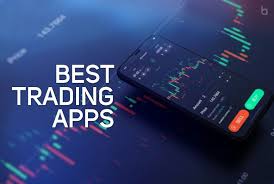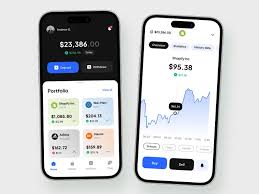
Which Trading App is Best?
Choosing the right trading app can significantly impact your trading experience and outcomes. With so many options available today, identifying the ideal platform tailored to your requirements is crucial. Whether you’re looking for advanced features, user-friendly interfaces, or exemplary customer support, there’s a trading app out there for you. For an extensive comparison of various trading platforms, visit which trading app is best bestappstrading.com, where you’ll find detailed reviews and user feedback.
Factors to Consider When Choosing a Trading App
When deciding which trading app is best for you, consider several essential factors that can influence your trading performance and overall satisfaction. Here are some key points to think about:
- User Interface: A clean and intuitive interface allows for a smoother trading experience. Look for apps that have easily navigable menus and accessible features.
- Available Assets: Some trading apps specialize in stock trading, while others may focus on options, forex, or crypto. Choose an app that offers the types of assets you want to trade.
- Fees and Commissions: Understand the fee structure of the trading app. Look for hidden fees, trading commissions, and withdrawal charges that can eat into your profits.
- Order Types: Different trading strategies require different order types. Ensure that the app supports the order types you’ll need to implement your trading strategies, such as limit orders, stop-loss orders, and more.
- Research Tools and Resources: A good trading app should provide access to research tools, charts, and educational resources to help users make informed decisions.
- Customer Support: Reliable customer support can be indispensable, especially when you encounter issues. Check the support options available, such as live chat, email, or phone support.
Top Trading Apps in 2023
Let’s take a closer look at some of the top trading apps currently available:
1. Robinhood
Robinhood is a popular commission-free trading app that caters to beginner investors. Its user-friendly interface and straightforward design make it easy for newcomers to enter the trading world. Robinhood offers a variety of assets, including stocks, options, and cryptocurrencies. However, it lacks advanced research tools, which may be a drawback for experienced traders.
2. E*TRADE
E*TRADE is an established platform known for its comprehensive trading capabilities. It offers a robust set of tools for both novice and seasoned traders, including multi-asset trading, research resources, and educational content. While its fees are relatively low, some may find it slightly more complicated due to its feature-rich environment.
3. TD Ameritrade
TD Ameritrade is renowned for its educational offerings and extensive resources for traders. It provides an array of assets, advanced charting tools, and customizable trading platforms. Its thinkorswim platform is especially praised among active traders for its versatility and depth of features. However, it may come with higher fees compared to other platforms, particularly for less active traders.

4. Webull
Webull is gaining popularity for offering commission-free trades and advanced tools. It provides extensive research resources, real-time data, and advanced charting capabilities. It’s a solid choice for intermediate to advanced traders who want more functionality without the fees typically associated with traditional trading platforms.
5. Coinbase
If you’re interested in cryptocurrency trading, Coinbase is one of the best options available. It offers a user-friendly interface and robust security features, making it a great choice for both beginners and experienced crypto traders. However, it’s important to note that Coinbase charges higher fees compared to some other exchanges, particularly during transactions.
Mobile Trading vs. Desktop Trading
While many trading apps focus on mobile platforms, desktop trading remains essential for many traders. Mobile apps allow for trading on the go, providing flexibility to manage your investments anytime. However, desktop platforms often offer advanced tools, larger screens for better data visualization, and an overall more comprehensive trading experience.
Depending on your trading style, it may be beneficial to use a combination of both mobile and desktop trading applications. Utilizing mobile apps for quick trades and alerts could complement your more extensive desktop analyses.
The Importance of Security Features
Security is a paramount concern when choosing a trading app. Before making your final selection, ensure that the app implements robust security protocols. Look for features such as two-factor authentication (2FA), encryption protocols, and history of security breaches. A secure app will safeguard your information and your investments, which is essential for your peace of mind while trading.
Conclusion
Deciding which trading app is best for you ultimately depends on your individual trading needs and preferences. Assessing factors like user interface, available assets, fees, research tools, and security features can guide your decision. Platforms like Robinhood, E*TRADE, TD Ameritrade, Webull, and Coinbase each have their strengths and weaknesses, making them suitable for different types of traders. Consider trying out a few apps before settling on one to find the best fit for your trading style. Happy trading!
